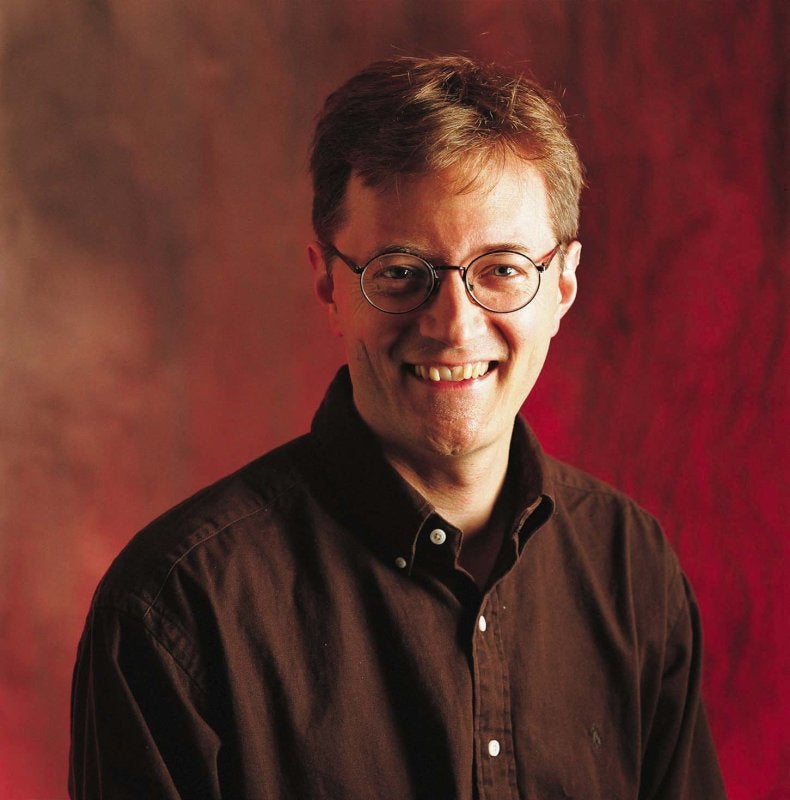
Michael Tiemann is a true open source software pioneer. He made his first major open source contribution more than three decades ago by writing the GNU C++ compiler, the first native-code C++ compiler and debugger. His early work led to the creation of leading open source technologies and the first open source business model.
In 1989, Tiemann's technical expertise and entrepreneurial spirit led him to co-found Cygnus Solutions, the first company to provide commercial support for open source software. During his ten years at Cygnus, Tiemann contributed in a number of roles from President to hacker, helping lead the company from fledgling start-up to an admired open source leader. When Cygnus was acquired by Red Hat in 2000, Tiemann became Red Hat's Chief Technical Officer (CTO) before becoming its first Vice President of Open Source Affairs. In that role Tiemann provides technology, strategy, and policy advice to executives in the public and private sectors.
Tiemann graduated from the Moore School at the University of Pennsylvania (Class of 1986) with a BS CSE degree, and later did research at INRIA (1988) and Stanford University (1988-1989).
Tiemann has served on a number of boards that have been instrumental in establishing Open Source as a leading development and commercial practice in the software industry. He joined the board of the Open Source Initiative in 2001 and served as its President from 2005-2012. Tiemann was also a founding board member of the Embedded Linux Consortium, the Eclipse Foundation, and an advisor to the GNOME Foundation. Tiemann provides financial support to organizations that further the goals of software and programmer freedom, including the Free Software Foundation and the Electronic Frontier Foundation.
He was also a Trustee of the University of North Carolina School of the Arts and a founding member of the Board of Advisors for the Center for Environmental Farming Systems (2006-present). Tiemann has also remained active in the Creative Commons community, as both a sponsor of projects and promoter of the cause.

Authored Comments
Richard: +1 on all counts. And yes, you got the quote right.
<p>You say:</p><blockquote>However, we struggle to reconcile this profit-based mission with open source philosophy. We strive to create an enriching and engaging curriculum that challenges our students and keeps them coming back for additional workshops. We need to protect our materials in order to retain our customer base. But this protection is at odds with the heart of our mission: to disseminate geospatial knowledge throughout the Bay area.</blockquote> <p>And this makes a new connection for me. When I was growing up, I simply did not understand ecology and environmentalism. I spent hours in the library looking for reliable reports (mostly in the New York Times microfilm archives) to debunk environmental claims and promote nuclear power. What I found was something really surprising: mining is not as simple as just pulling resources out of the ground. Indeed, one of the things that made me an environmentalist was a new understanding of just how problematic were all the activities <em>before</em> the first fuel rod went into the reactor.</p><p>The connection to open source is this: you are absolutely right that you need to <em>protect</em> your work. If you lose the abililty to practice, reproduce, improve, and teach others to participate in developing your body of work, your have no professional future. I realized that of all the licenses I had ever read, the GPL was the first (and I argue, still the best) at protecting <em>me</em> by protecting <em>my work</em> in a way that makes that work a sustainable practice by allowing a community to form around it.</p><p>Concepts of "protection" that actually protect against community interests are the worst sort of protection there is. Mining companies are "protected" against following the Clean Air and Clean Water acts, and utter destruction of the environment and community is the result. That's not sustainable.</p><p>Your mission, which is to disseminate geospatial knowledge (which I applaud, by the way), is the thing you should protect. Using open source software as a means to that end is a great approach. I have come to believe that sustainability is a better approach to achieving profits (or non-profit success, as the case may be) than focusing on profits to achieve sustainability.</p>